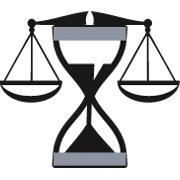Best Military Law Lawyers in Republic of Moldova
Share your needs with us, get contacted by law firms.
Free. Takes 2 min.
Or refine your search by selecting a city:
List of the best lawyers in Republic of Moldova
About Military Law in Republic of Moldova
Military Law in the Republic of Moldova governs the conduct, duties, and rights of military personnel and the operations of military institutions. This field of law addresses a range of issues, from recruitment and conscription to the discipline and discharge of service members. It aims to ensure that the military functions effectively while upholding the rights of its personnel. Moldova's military legal framework is influenced by both national legislation and international treaties to which Moldova is a party, ensuring compliance with international standards.
Why You May Need a Lawyer
Individuals may require legal assistance in military law for various reasons. Common situations include disputes over conscription or recruitment, handling disciplinary actions, and navigating rights and obligations during active duty. Experienced legal counsel can also assist those facing charges under military law, such as insubordination, AWOL (Absent Without Leave), or other infractions. Additionally, a lawyer can provide guidance on issues such as discharge or reinstatement and help veterans secure benefits or address grievances related to their service.
Local Laws Overview
Moldova's military law is embodied in several key pieces of legislation, primarily the National Defense Law, the Law on the Status of Military Personnel, and the Military Code of Moldova. These laws outline the structure and jurisdiction of military service, including recruitment rules, service obligations, and conduct expectations. They also set forth procedures for handling offenses and establishing the military court's role in adjudicating cases involving service members. Attention to both domestic legal frameworks and international agreements ensures Moldova's armed forces operate in compliance with broader legal standards.
Frequently Asked Questions
What is the conscription age in Moldova?
In Moldova, the conscription age is typically from 18 to 27 years. However, regulations may change, so it is advisable to check the current laws or consult a legal expert.
Can women serve in the military in Moldova?
Yes, women can serve in the Moldovan military, and there are roles available for them across various branches, although some positions may have gender-specific requirements.
What rights do military personnel have in Moldova?
Military personnel in Moldova have rights similar to those of civilians, including the right to fair treatment, a safe working environment, and access to legal recourse. Specific rights related to service are detailed in the Law on the Status of Military Personnel.
How are military offenses handled in Moldova?
Military offenses in Moldova are handled by military courts, which operate under the jurisdiction set out in the Military Code. These courts ensure that justice is served according to the specific conditions of military life.
Is there a military justice system separate from the civilian system?
Yes, Moldova maintains a separate military justice system to handle cases involving service members, particularly those related to offenses committed in the line of duty.
What are my options if I'm dissatisfied with a military court decision?
If you're dissatisfied with a military court decision, you have the right to appeal within the framework provided by military judicial procedures. Consulting a lawyer can help clarify your options.
Are there any penalties for refusing conscription?
Yes, refusal to comply with conscription mandates can result in legal penalties, including fines or imprisonment, depending on the circumstances.
How can I address a grievance related to military service?
It’s best to address grievances through official military channels or, if necessary, civil courts. Legal advice can provide guidance on the proper procedure based on your specific situation.
Do veterans receive any benefits in Moldova?
Yes, veterans are entitled to specific benefits such as pensions, healthcare, and other support services. These benefits are defined by laws governing military and veteran affairs in Moldova.
Can legal aid be provided to military personnel in Moldova?
Yes, military personnel in Moldova can access legal aid services, especially if they cannot afford private legal representation.
Additional Resources
For legal advice related to military law in Moldova, the following resources can be helpful:
- The Ministry of Defense of the Republic of Moldova: Overseeing military regulations and affairs.
- The National Military Court: For guidance on military legal proceedings.
- Non-governmental organizations that provide support to military personnel and veterans: These may offer counseling, legal aid, and support services.
Next Steps
If you need legal assistance in military law, your first step should be to consult with a lawyer specializing in military law or a legal assistance organization. You may also want to contact the Ministry of Defense for guidance on procedural matters related to military service. Ensure that any legal representative you choose has experience with military cases to provide knowledgeable and effective support. Consider approaching non-profit organizations or legal aid services if cost is a concern. Finally, keep abreast of changes in military law by attending informational sessions or workshops offered by relevant authorities or organizations.
Lawzana helps you find the best lawyers and law firms in Republic of Moldova through a curated and pre-screened list of qualified legal professionals. Our platform offers rankings and detailed profiles of attorneys and law firms, allowing you to compare based on practice areas, including Military Law, experience, and client feedback.
Each profile includes a description of the firm's areas of practice, client reviews, team members and partners, year of establishment, spoken languages, office locations, contact information, social media presence, and any published articles or resources. Most firms on our platform speak English and are experienced in both local and international legal matters.
Get a quote from top-rated law firms in Republic of Moldova — quickly, securely, and without unnecessary hassle.
Disclaimer:
The information provided on this page is for general informational purposes only and does not constitute legal advice. While we strive to ensure the accuracy and relevance of the content, legal information may change over time, and interpretations of the law can vary. You should always consult with a qualified legal professional for advice specific to your situation.
We disclaim all liability for actions taken or not taken based on the content of this page. If you believe any information is incorrect or outdated, please contact us, and we will review and update it where appropriate.
Browse military law law firms by city in Republic of Moldova
Refine your search by selecting a city.













